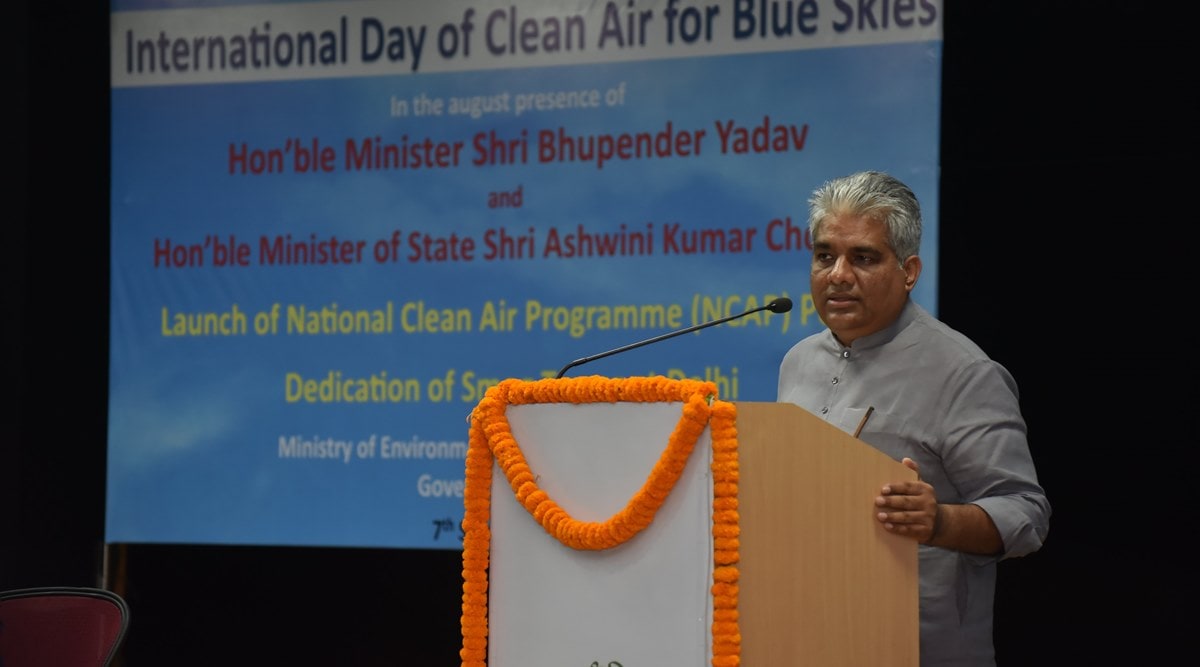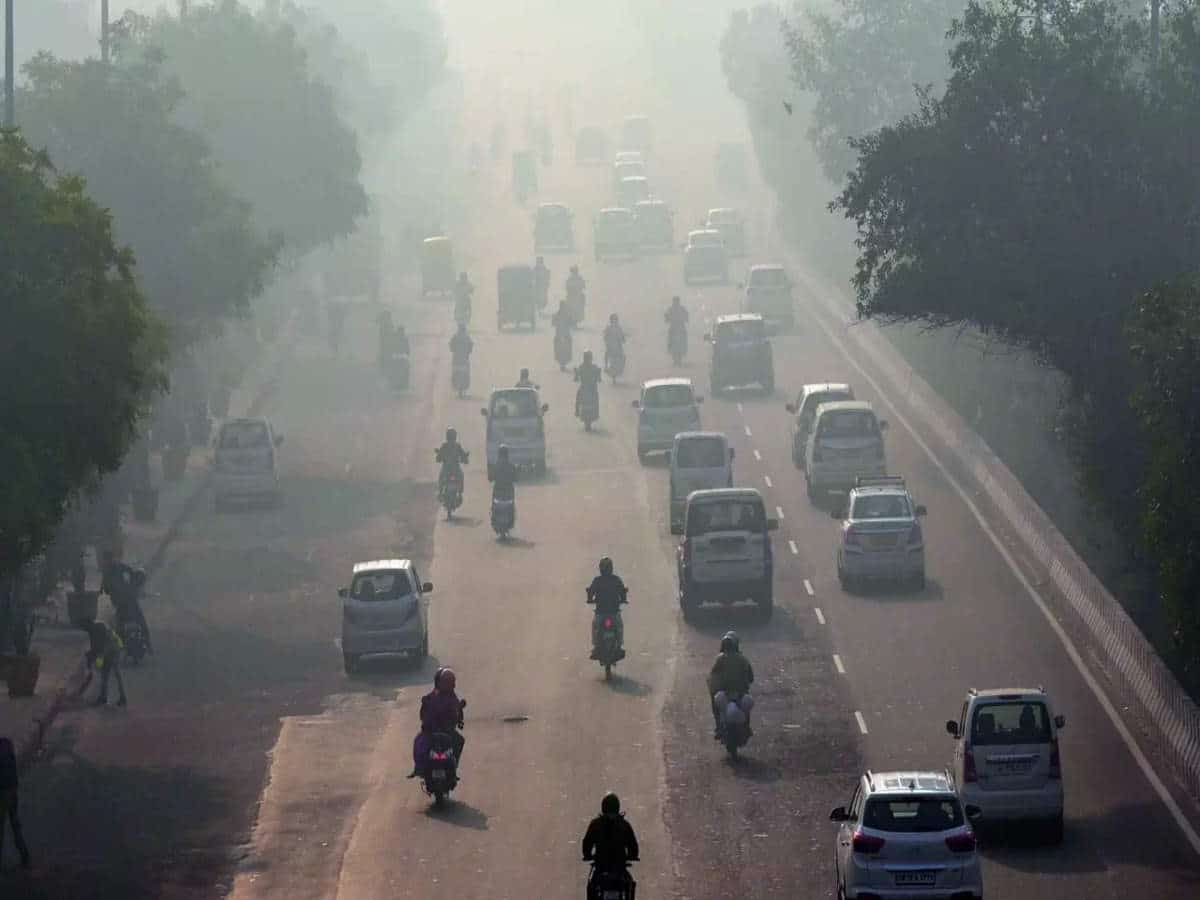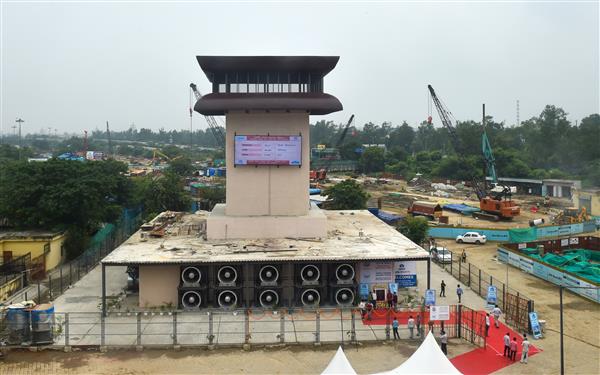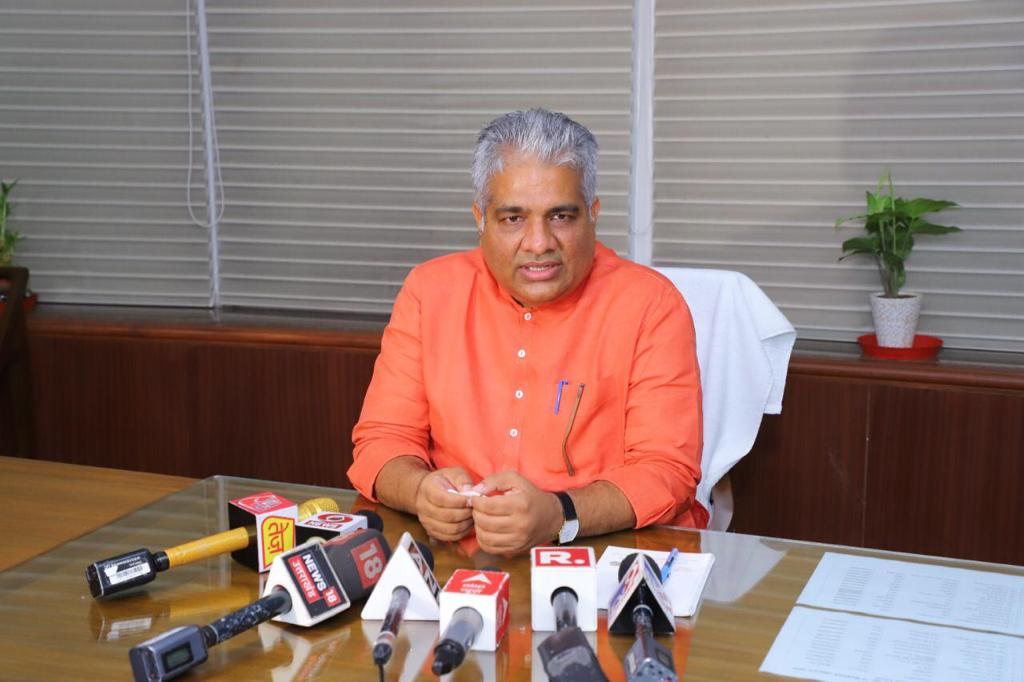Environmental Minister Bhupendra Yadav asserted on Tuesday that the air quality in the country has improved substantially. The number of cities with clean air has risen to 104 in 2020 from 86 in 2018.
The minister added that this change has become possible because of the policies implemented by the government in favour of building a safe environment. He mentioned this at a public function on the International Day of Clean Air For Blue Skies, reported The Hindu.
However, the Environment Ministry for its record states in the Parliament that this reduction in Air Pollution is rather the result of lockdown in 2020 due to the COVID-19 Pandemic rather than anything else.

As the answer to a question in Lok Sabha on February 12, the lockdown due to COVID-19 has resulted in a “temporary improvement” in the air quality in a lot of cities as many industries were not functional and vehicular pollution on the road was low as well.
The response added, “However, the improvement in air quality due to widespread restrictions on the operation of major activities was an extraordinary situation and, once normality is attained, pollution levels trend is observed in business-as-usual scenarios.”
To keep vigilance upon city-specific action plans to improve air quality, the Centre has launched a particular portal that will support tracking of physical as well as the financial status of the plan under the National Clean Air Programme (NCAP), reported The Times of India.

Ministry of Housing and Urban Affairs in its notification stated, “The Central Government launched National Clean Air Programme (NCAP) as a long-term, time-bound, national-level strategy to tackle the air pollution problem across the country in a comprehensive manner with targets to achieve 20% to 30% reduction in Particulate Matter concentrations by 2024 keeping 2017 as the base year for the comparison of concentration.
Under NCAP, 122 non-attainment cities have been identified across the country based on the Air Quality data from 2014-2018.”
The NCAP plan was introduced in 2019 to keep constant vigilance upon improving air quality and city-specific plans that are developed in this regard.
The Assam government has also started an initiative to see improvement in air quality. The government has introduced a “draft electric vehicle policy” to improve air quality by getting rid of vehicles run by fossil fuels by 2030, stated a report.

Principal secretary (industries and commerce) KK Dwivedi said, “It’s a bold decision taken by the government with an eye on improving air quality by reducing emission from vehicles. It’s just the beginning, but we are getting a good response to the policy.”
“In order to encourage people to buy EVs, the state government will give a subsidy of ₹20,000 on two-wheelers, ₹50,000 for three-wheelers and ₹1.5 lakh for four-wheelers. There will be 100% exemption of registration fees, road tax and parking fees for EVs,” he said.
Currently, Assam has over 4 million vehicles operating across the state. The new policy envisions that by 2026, 25% of newly-registered vehicles will be Electronic Vehicles, reported the HT Times.












